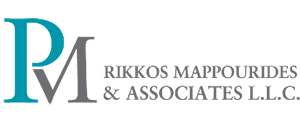Freedom of speech on social media, a new era (C-18/18 Eva Glawischnig-Piesczek v Facebook Ireland Limited)
Freedom of speech on social media, a new era
C-18/18 Eva Glawischnig-Piesczek v Facebook Ireland Limited
On the 3rd of October 2019, the European Court of Justice reached to an important decision changing the legal perception on personal freedom of speech, information services and liabilities of intermediary service providers. The ECJ was requested for a preliminary ruling from the Supreme Court of Austria on Directive 2000/31/EC which is implemented to determine the scope of certain legal aspects of information society services, inter alia, the liabilities of intermediary service providers and e-commerce. The questions in hand were whether a domestic court has an authority to order any intermediary service provider to remove or block access to the information previously declared illegal, and, if the courts have such an authority; whether it is possible to extend this authority to be effective worldwide. For this reason, the ECJ interpreted these questions with their plain meaning as they were stated under Article 15(1) of the Directive for the preliminary ruling. Whilst Article 15(1) was being questioned, the effect of exemptions given under Article 14(1) and 14(3) has been discussed extensively to emphasize the meaning of three mentioned Article. The ECJ ruled that these particular Articles shall not be interpreted in a way which refrain the power of domestic court. Instead, it shall be interpreted as the domestic courts are granted to order any intermediary service provider to remove or block information to access on the basis that the information stored is previously declared as illegal or defamatory including this order to be an effective injunction worldwide.
The ruling is not meant for a restriction of any fundamental rights and freedoms granted by the EU Charter of Fundamental Rights but it is meant for a better facilitation of Community rules. The ruling is a landmark case for any global illegal or defamatory activity towards individuals on social media which overreaches both EU Charter of Fundamental Rights and European Convention on Human Rights because any hatred speech, defamation, libel or verbal attack towards any individual cannot be described as a part of the freedom of speech. Therefore, after this ruling, the domestic courts will hold the power to prevent increasing amount of illegal and defamatory activity on social media.
At the ruling, the Court emphasized the recital 58 of the Directive stating that the scope of this Directive does not extend to any third country. But, this Directive has been implemented with a common global view and aligned with the international rules. In other words, in the light of this recital, it may be possible to draw a conclusion that this preliminary ruling can be seen as a case precedent for the interpretation of these international rules albeit the domestic courts of third countries adopt the same interpretation. Despite the ongoing debates on US-based journals, indeed, a domestic court of an EU member state can order the removal of content worldwide. However, it should be borne in mind that the Directive or the ruling of ECJ case is not granting any power beyond the international rules. In other words, these rules are applicable and binding on the domestic courts, thus, the domestic courts shall be complying. Nonetheless, the major issue arises at this point where an EU member state has stricter rules on defamation and hate speech than any other state. The issue in the hand brings legal uncertainty on intermediary service providers and domestic courts; on top of that, this situation will lead to a specific worldwide definition of regulations and laws on the case matter, driven by a single state.
Ultimately, the ruling brought a wider definition on the Directive, on the liability of the service providers and domestic courts. The decision raises the level of liability to a very high standard on the intermediary service providers to monitor, inspect, interpret and remove any content posted previously declared defamatory or illegal.
Berk Gokhan

